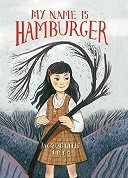Laney Katz Becker’s In the Family Way is a necessary and moving reminder of the evolution of women’s rights in the US. It highlights the importance of education and community in fostering women’s empowerment.
In 1965, sisters Lily and Rose are both happily married. The wife of an obstetrician and the mother of a toddler, Lily is pregnant and content to be a doting housewife. But she has embraced this traditional female role so fervently that she lacks the curiosity to imagine that the other women in her circle might want to make different choices. Lily’s sister, Rose, has a college degree and works as a teacher outside the home, but Lily has a difficult time understanding why Rose wouldn’t want to give up her job and become a mother as soon as possible. Meanwhile, the women in Lily’s weekly canasta group face various challenges of their own — including infertility and unwanted pregnancies — as does Betsy, a pregnant fifteen-year-old girl who Lily has taken in as part of a program with a local home for unwed mothers.
Becker’s strength is capturing the dichotomy of this time period through the disparate experiences of her characters. The mid-1960’s were filled with women like Lily — women stuck so firmly in a 1950’s mindset that they were terrified to talk about sex or to challenge the male-dominated worldview. But the 1960’s were also filled with women like Rose and Lily’s neighbor Becca — women who longed for their own careers, women who felt trapped by motherhood, women who strained against unfair boundaries and publicly protested to advance equal rights.
Lily’s enlightenment comes in the form of the other women in her life. When Betsy asks rudimentary questions about pregnancy, Lily is compelled to confront her own squeamishness about her body and her sexuality. Becca and Rose’s more dramatic struggles force Lily to consider other ways of thinking about motherhood and marriage beyond the romanticized ideals that she has clung to since childhood.
Lily and Rose come from a Jewish family, and while this is not a central theme of the story, readers will appreciate Lily’s explanations of her faith to Betsy.
Becker’s choice to alternate among the points of view of her characters brightens the pace of this narrative. The potential frustration some readers may feel regarding Lily’s initially saccharine opinions will be tempered as the story progresses. Because of the sisterhood that surrounds her, Lily is driven to act, to examine her own antiquated views, and to substitute judgement for acceptance.
Perfect for book clubs, this nostalgic and satisfying read will appeal to women of all ages.
Lynda Cohen Loigman, a graduate of Harvard College and Columbia Law School, is the author of four novels, including The Two-Family House and The Matchmaker’s Gift. Her most recent novel, The Love Elixir of Augusta Stern, was an Amazon Editor’s Pick, an October 2024 Book of The Month Club selection, and a finalist for the Goodreads 2024 Choice Awards in Historical Fiction.





